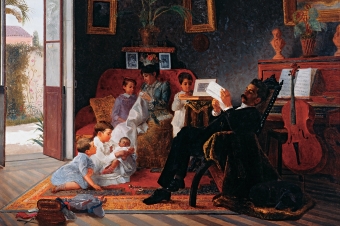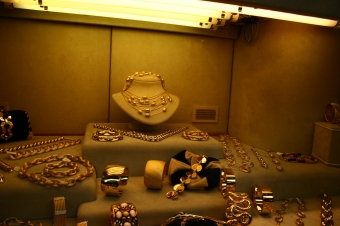Summary:
The activity focuses on critical thinking and the ability to solve problems in Criminal Law, specifically working with the issue of the drug user. Students had to submit a proposal for a legal system ideal for the treatment of the drug problem based on their own research, which involved many law areas. In the end, they presented the final product in a public hearing in the presence of authorities and representatives of several social segments.
Objective:
- GENERAL GOALS: The general goals of the Criminal Law VI class are to dominate the basics concepts of criminal law as a branch of public law, emphasizing its purpose of protection of fundamental legal rights in order to provide an understanding of the criminal-legal system.
- SPECIFIC GOALS: The working content was Article 28 of the Drug Law (Law No. 11.343/2006), featuring the following:
- To study criminal law and its practical application;
- To understand the criminal law as a tool to promote social peace;
- To analyze concrete cases under the proposal perspective.
Thus, the implementation of the present activity aims to provide to our students the achievement of all these scopes with regards to the treated topic. Also, they studied the theory about the legal treatment given to drug users in Brazil, and then they created an ideal model, thinking about a right that promotes social peace and finally analyzed a real problem faced by the entire world.
- DEVELOPED ABILITIES: The abilities and competencies worked with students were the critical thinking and the ability to solve problems and teamwork.
Dynamics:
- TEACHING METHOD: There were used methods of Problem-Based Learning and Project-Based Learning, since the students should identify the problem and provide solutions of it.
- REQUIREMENTS: in relation to the students, the preparation consisted of group work and development of research on the proposed topic, investigating not only in the area of criminal law, but also in constitutional law, comparative law, sociology, medicine, social work and in all other sciences that were appropriate. Proposals for the ideal legal system for drug users in Brazil were delivered in written paper to the teacher (one per group), and then there was held a public hearing to share the conclusions of the students with the whole society. One student from each group presented these findings orally. No member from any group, until the event took place, knew who would be the speaker. Then, minutes before starting the submission of the proposals, one person from each group was selected to make the oral presentations.
In relation to the professor, there was in first place, the training made by the consortium called STHEMBRASIL/LASPAU to which the Toledo University Center is syndicated and Steering Committee member. The professor studied the two active methodologies chosen for the activity and facing it began to analyze what would be the best content to apply them. In the menu referring to the content, she researched on a controversial theme that would enable the students to develop the skills and competencies listed above, and at the same time contribute to the society in which we live. Subsequently, she wrote the problem based on the class’ syllabus, in order to let students free to create, explore knowledge from other class such as constitutional law and diverse fields (psychology, sociology, social work, medicine). Additionally, she organized the public hearing, inviting people to debate who composed the table and made considerations on the proposals of the students. The professor also conducted the event, subdividing it into two parts: first, the proposal’s presentations by the groups; and second, the discussions with board members and audience. After the activity, she assessed each of the written papers delivered and the participation of each student during the public event.
- DEVELOPMENT OF THE DYNAMICS: it was realized with students the development a project on the legal treatment of drug users (using the methodology called " Project-Based Learning "), in which a practical problem was presented to the students, gathered in groups of 7 people to create a proposal of what they considered the ideal legal system for these users.
The research results have been transformed into a 'Project-Based Learning", whose concrete "product" was to hold a public hearing named "Perspectives on the legal confrontation of drug use in Brazil". The students presented legal proposals approaching the drug problem (from the criminalization/decriminalization to coping policies such as compulsory admission to rehab houses).
One student from each group exposed orally the ideal legal system that they properly understood to drug users in Brazil. No member from any group, until the beginning of the public hearing, was aware of which members would be the speakers. Minutes before presentation began, a component of each group was randomly selected to make the oral presentations.
The chosen panelists made comments about the proposals of the students, as well as prosecutors from the Public Ministry, judiciary, lawyers, Caps AD professionals, military and civil police, councilors and mayors from the region, Secretary of Social Services of the city of Presidente Prudente, hospitals’ representatives that treat drug users in the region, the social service course, a former drug user, as well as the entire community.
All students presented on a stage, given that they were the great protagonists of the night. When the hearing was over, they were proud to have contributed to a really relevant discussion to the community in which they live in. In addition, the students were feeling important to have participated, to have starred on that event. Local media and the University Center media department have covered the activity and many governments in the region were present, which further strengthened this role of the student.
Many of the students, who participated in the activity, later reported that they were surprised with themselves regarding their involvement in the activity. It was noticeable that students who never actively participate in traditional classes engaged themselves because they asked to speak into the microphone to an audience that filled the Noble Hall of the University.
The students took an active role in the pursuit of their knowledge and realized that, as law students, they can change society in which they live through their professional effort.
- ATTENTION IN THE CLASSROOM:
1) First, every step of the methodology applied should be planned. The professor should make it very clear to the students what activities they will be doing during this process and what are the goals that should be achieved with the activity. Moreover, the professor must focus on pursuing a tutor function rather than be the "owner" of knowledge.
2) Initially, the students resisted to perform the activity. They were reluctant to hold the public hearing because they did not want to expose their opinions in front of an audience composed by various branches of society. However, when the hearing began, they got too involved with the theme and defended their opinions. All of them, during the debates, asked for the word - which also raises a question about the time: there was not possible to finish the event at the scheduled time, since they wanted to "talk".
Evaluation:
- FEEDBACK FORM:
- GRADE EVALUATION: The activity was divided into two parts: 0.5 point for the written work and 0.5 point for the participation in the public hearing.
Observation:
1) It is possible to encourage the students to conduct a field research with drug users and ex-users, in order to get a more concrete view about this social question.
2) The evaluation methodology can be changed. Thus, for example, it is possible to implement a hybrid system of evaluation, in which half of the grade is given by the professor and the other half by the pairs (each student group attaches the grade to the other members of the group explaining the reason for this evaluation).






